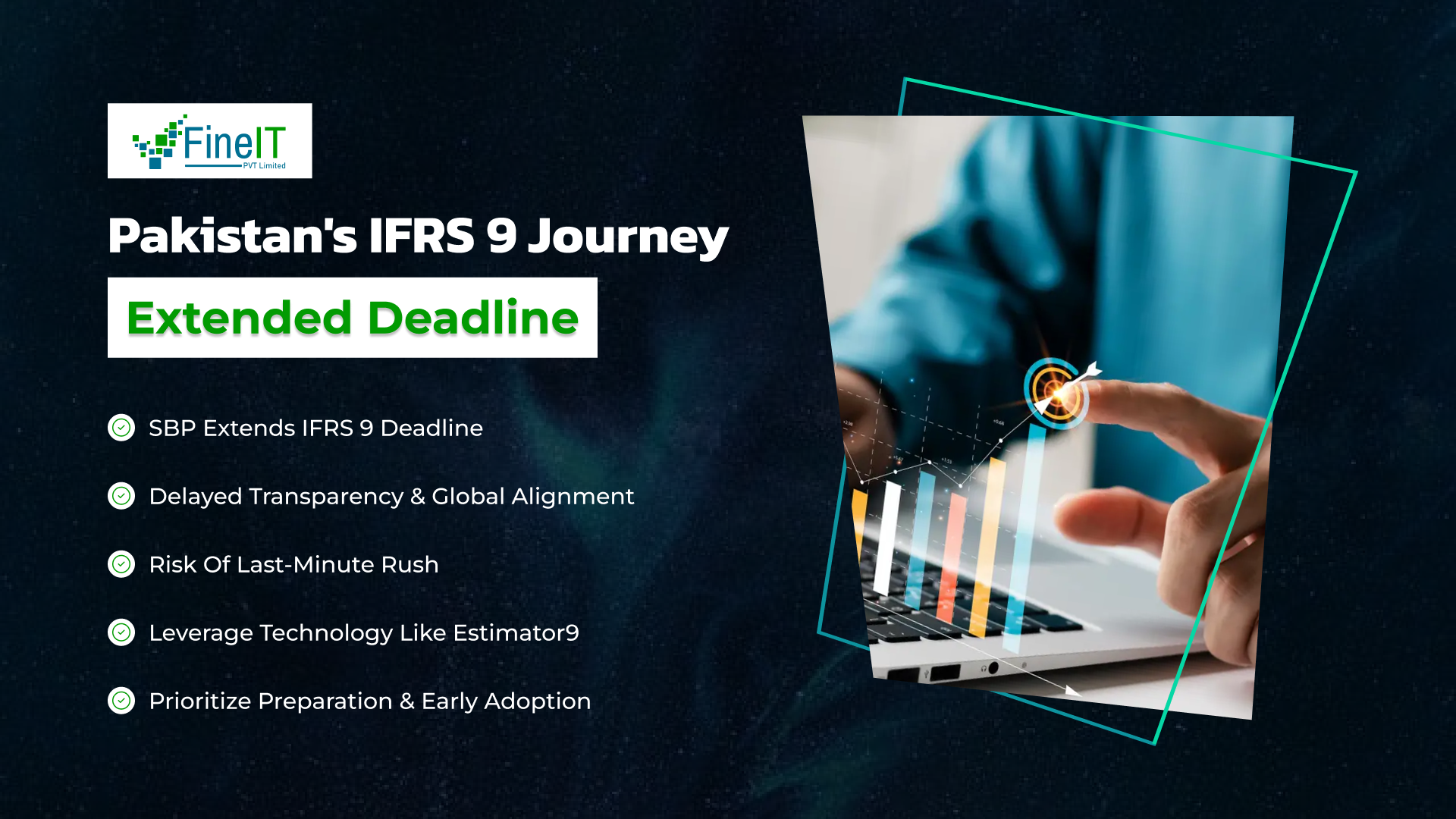The State Bank of Pakistan’s (SBP) recent decision to extend the implementation deadline for International Financial Reporting Standard (IFRS 9) has drawn mixed reactions from the financial sector. While the extension provides temporary relief to banks and financial institutions (FIs), it raises questions about the long-term implications for financial reporting transparency and consistency in Pakistan.
A Recap of the Timeline:
Originally, IFRS 9 implementation was set for January 1st, 2022, for large banks (those with asset size exceeding Rs. 500 billion) and Development Finance Institutions (DFIs). However, in July 2022, the SBP announced a delay, pushing the deadline back to January 1st, 2023. This latest extension applies to these larger institutions as well as all other banks and Microfinance Banks (MFBs). Notably, early adoption of the standard remains permissible.
Criticisms of the Delay:
While the rationale behind the extension might involve addressing industry feedback and allowing for a smoother transition, there are potential drawbacks to consider:
- Delayed Transparency: IFRS 9 aims for a more robust and risk-sensitive approach to financial instrument accounting. A delay in implementation can postpone the benefits of increased transparency and comparability in financial reporting across Pakistani institutions.
- Global Alignment Concerns: Pakistan’s financial sector aspires for greater integration with international markets. Delays in adopting globally recognized standards like IFRS 9 can create a disconnect and potentially hinder this integration.
- Implementation Challenges Pushed Back: The extension might lead to a sense of complacency among some institutions, potentially delaying their preparations for adopting the new standard. This could lead to a last-minute scramble when the final deadline arrives.
Leveraging Technology for Efficient Implementation:
Amidst the extended timeline, financial institutions can benefit from utilizing technology to streamline IFRS 9 implementation. Solutions like IFRS 9, a fully automated IFRS 9 compliance software, can significantly reduce the burden of calculating Expected Credit Loss (ECL). With a proven track record of satisfying clients across various regions, Estimator9 offers a reliable and efficient approach to meeting IFRS 9 requirements.
Looking Forward:
The SBP’s decision to extend the IFRS 9 implementation timeline offers breathing room for Pakistani banks and FIs. However, it’s crucial to utilize this time effectively. Institutions should prioritize completing the necessary preparations, including staff training, system upgrades, and data migration. Furthermore, early adopters should ensure their reporting practices are aligned with the standard’s requirements. By leveraging technology and adopting a proactive approach, the Pakistani financial sector can mitigate the challenges posed by the delayed implementation and position itself for a successful transition to IFRS 9.
Muzammal Rahim Khan is the CEO and Co-Founder of FineIT, bringing over 15 years of expertise in software development, implementation, and technical consulting across global markets including the U.S., U.K., Europe, Africa, and Asia. He has led the design and delivery of enterprise-grade solutions that modernize compliance, risk management, and financial reporting for banks and financial institutions. Under his leadership, FineIT has built flagship platforms such as Estimator9 (IFRS 9) and ContractHive (IFRS 16), empowering clients with automation, accuracy, and audit-ready confidence. Muzammal combines deep technical knowledge with strategic vision, driving innovation that bridges regulatory requirements with practical, scalable technology. His focus remains on building resilient, future-ready solutions that strengthen trust and efficiency in financial services.
